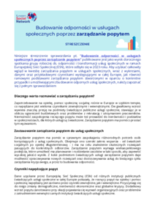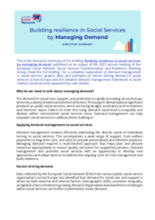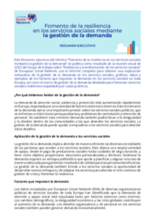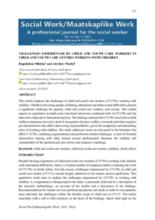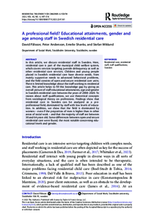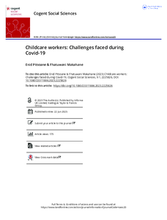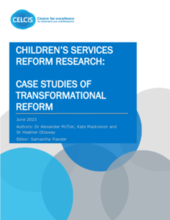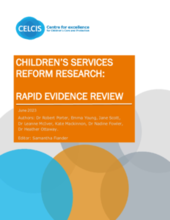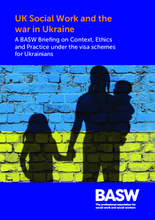Displaying 41 - 50 of 505
Niniejsze streszczenie sprawozdania pt. “Budowanie odporności w usługach społecznych poprzez zarządzanie popytem” publikowane jest jako wynik dorocznego spotkania grupy roboczej ds.
This is the Executive Summary of the briefing ‘Building resilience in social services by managing demand’ published as an output of the 2023 annual meeting of the European Social Network ‘Social Services Transformation and Resilience’ Working Grou
Este Resumen ejecutivo del informe “Fomento de la resiliencia en los servicios sociales mediante la gestión de la demanda” se publica como resultado de la reunión anual de 2023 del Grupo de trabajo sobre “Resiliencia y transformación de los servic
This article explores the challenges of child and youth care workers (CYCWs) working with children in South Africa.
In this article, the authors discuss residential staff in Sweden where residential care is part of the municipal child welfare system, which covers services targeting juvenile delinquency as well as other residential care services. Children and young people placed in Swedish residential care have diverse needs, from mainly supportive needs to advanced behavioral problems, and the field consists of open and secure residential care units.
This UNICEF ESARO webinar explores the role of case management in care reform and examines strategies for effective case management from Kenya, Ghana and Uganda.
This study explores the resilience of childcare workers in South Africa in managing the well-being of vulnerable orphans during COVID-19.
Case studies of transformational reform programmes examined a range of approaches to the delivery of children’s services to better understand the evidence regarding systems-level integration between children’s social work/social care with health services and/or adult social care.
Strand 1: Rapid Evidence Review reviewed existing published national and international research evidence focused on better understanding the evidence associated with different models of integration of children’s services with health and/or adult social care services in high income countries, as defined by the World Bank.
The focus of this document is to support, inform and empower social workers across the UK in their ongoing practice and consideration of issues that arise in relation to people arriving and staying under the UK Ukraine visa schemes.

